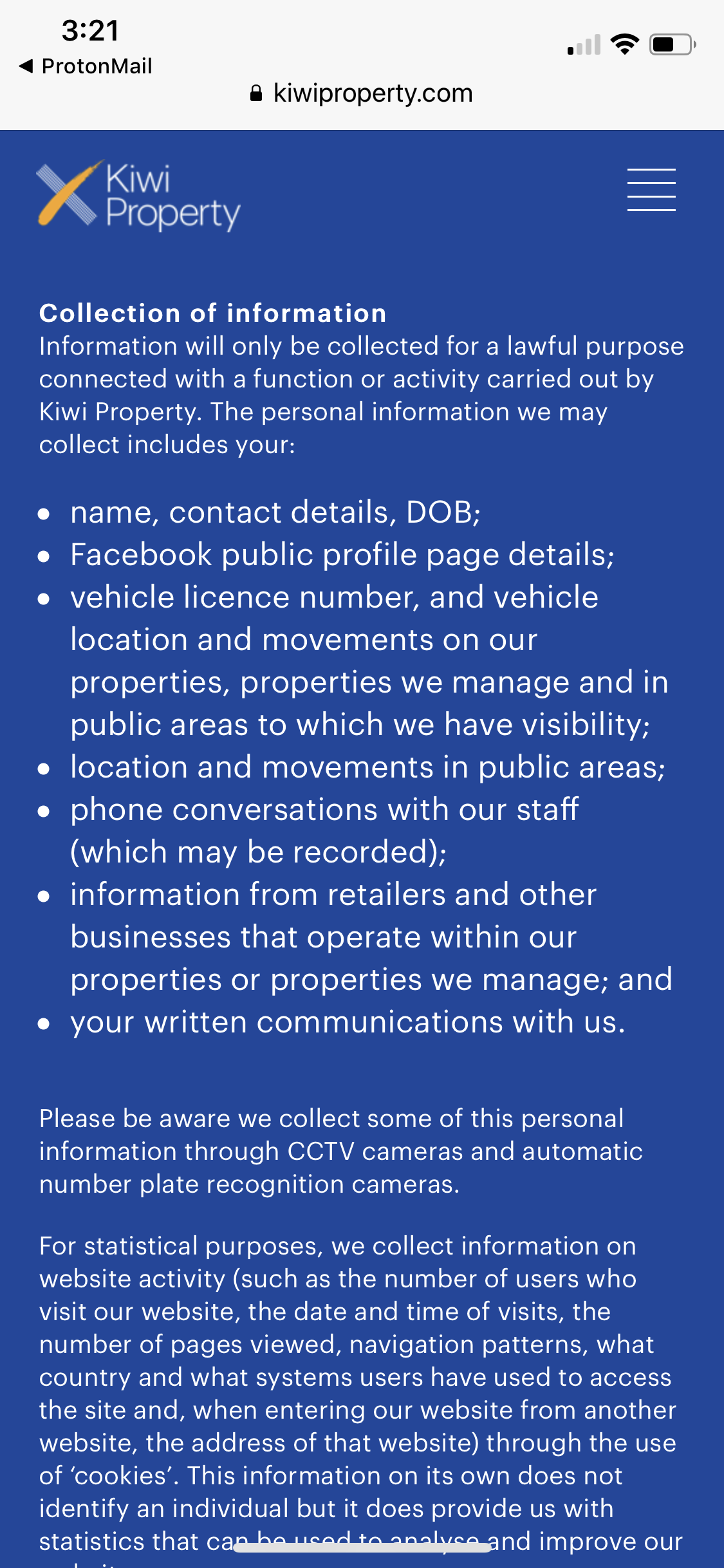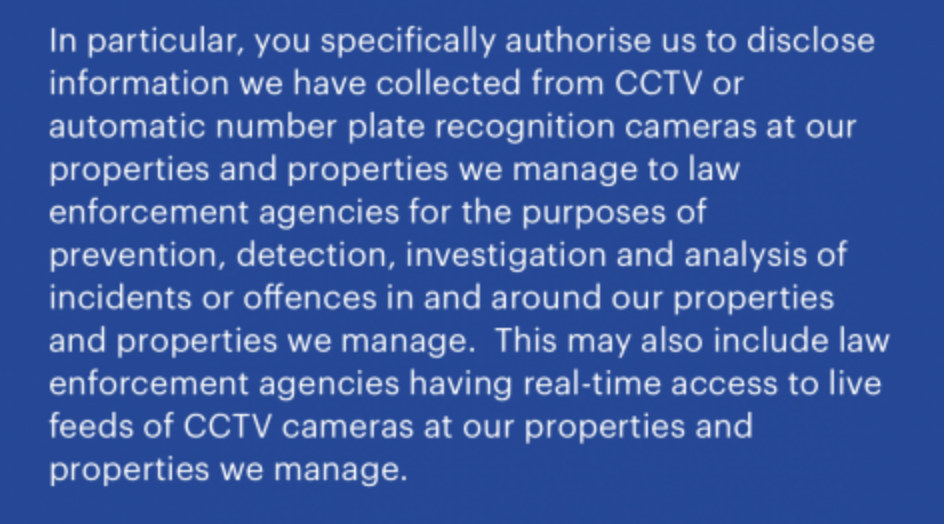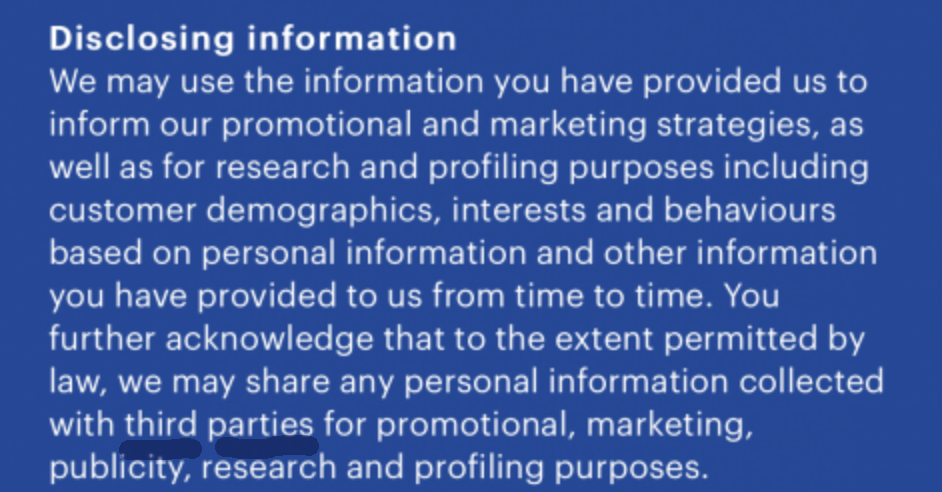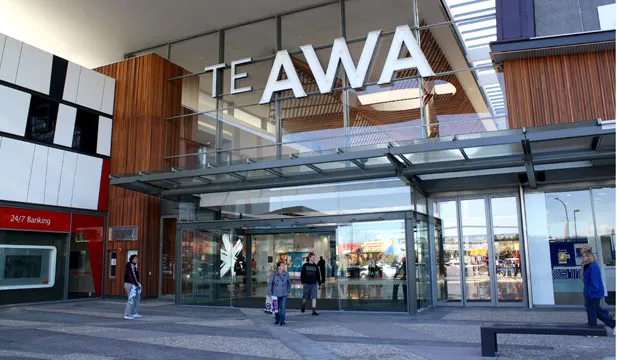Table of Contents
How often have you signed up to something online and actually read the terms and conditions? If you are like me the answer is probably rarely if at all. The fine print tends to be pages long and gives me a headache, so I usually skip it on the assumption that it will be pretty standard stuff and nothing to worry about.
One intrepid reader of the BFD out of curiosity decided to wade in and what she discovered may shock you.
Below are screenshots of the terms and conditions you agree to when you sign up to use free wifi at Te Awa (The Base Hamilton). They were taken last year. Most people would simply tick the ‘I agree’ box. But I thought I’d take a look and was pretty surprised to see what I had agreed to.

In these terms and conditions it seems that, via their wifi, I agree to give them my shopping data (through banks? loyalty schemes? shops sharing our private info?), facebook data, and number plates (via cameras in carpark or link to land transport?) and permission to track me in public spaces (ie every road in NZ).
Camera installations are being scaled up at an alarming rate around the nation. At what cost I wonder? Obviously we already have a well-integrated big data system.


But who are they? Who exactly have we given permission to in these terms? Who are the overseas third parties mentioned? I understand the need to protect against shoplifters but there is nothing in here saying our info is only going to the New Zealand police. In fact, it’s pretty obscure as to who’s getting to track us.
Cameras are obviously a significant element in this government’s budget. Should we not be having conversations about how this will look in the future?
It seems like China’s shiny new social credit system is already well in progress in New Zealand.
As someone who understands well how surveillance is a weapon in the wrong hands (Xinjiang extrajudicial mass internment camps are a prime example), these terms and conditions are not very comforting.
Apparently shop keepers at The Base must present their sales data to their landlord before paying rent. I don’t know much about this but understand they pay commission on sales. I wonder if this data is linked to private individuals’ purchases and data collection?
Citizen journalists. If you have information that would make a good news story or have written your own article, send it to the Editor of The BFD









